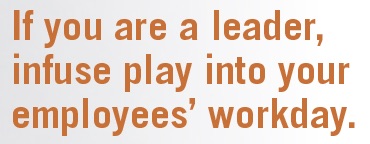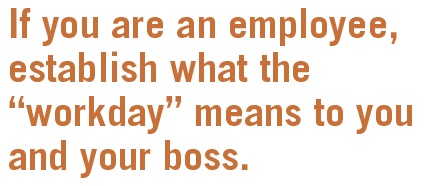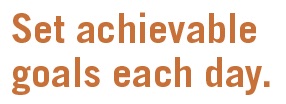Personal Development: Time Management In The 'New Normal' Of Remote Work

It’s been a year since the pandemic forced many people to start working remotely. While most of us are accustomed to the arrangement, fewer of us are thriving because of it. That’s because working from home can be endlessly tough. There are countless distractions, from kids to pets and to partners also trying to get their own work done. Meanwhile, the workday hours blur as the work piles up and before we know it, we’re tethered to our desks and working around the clock. Since many companies are delaying reopening offices on a full-time basis, now is the best time to get meticulous about time management.
Working from home can blur the boundaries between work time and personal time like nothing else. On one hand, the work doesn’t stop just because you’re at home, but on the other, you can’t be a great leader or employee when you spend all your time glued to your work computer. The better you become at optimizing your work hours and making the most of the time you have outside of work, the more balanced and calm your whole life will become.
Gaining more conscious and mindful control of how we spend our time is the closest we can come to slowing the relentless flow of sand through the hourglass. These tips can help you maximize those precious moments you do have.
Prioritize self-care time. This includes making time for seven to nine hours of sleep a night, designating time to eat breakfast, lunch and dinner (at the table, not at your desk while you work), and factoring in adequate time for family and leisure. Working nonstop allows us virtually no down time to catch our breath, take care of personal needs or mentally recharge for the rest of the day. Personal tasks should not be deemed unimportant when they are essential to our very survival. We simply need to overcome the knee-jerk urge to put ourselves last.

Infusing appropriate play into the workplace is time well spent, because it can promote a positive culture, which leads to improved productivity and stronger relationships. Even though many people are working from home, you can still enjoy some team-building fun and camaraderie. Host themed Zoom business meetings in which everyone dresses for the theme. Mail your employees small care packages with coffee and donuts. Host online birthday or holiday celebrations and regular “happy hours” so people can chat, share what they’ve been up to and bond.

It’s common for employers to call or email you after hours, but it is up to you to decide whether or not you’re available after hours. Never has this been truer than in the new normal of COVID-19, when people are more likely to work day and night. If you choose to be off-duty on nights and weekends, that is your choice (and your right). Just make sure you respectfully address your “workday” limits to your boss upfront, so everyone is clear on the boundaries.

Constantly checking your inbox is distracting and slows you down. Designate a few times in your workday to check email so that you remain in control of your schedule and aren’t being reactive to new messages as they appear.

Surfing the web is a huge time-waster for most people. An innocent little break often turns into an hour (or more) of wasted time that you can’t get back—especially when you should be working or headed to bed to get some rest. Shut off access to the internet at a certain time each day to avoid getting lost in cyberspace and take breaks from recreational internet use—about a month—to focus on other aspects of your life that may need attention.

Instead, focus on each daily task one at a time. For example, if you are working on a project for work, don’t start thinking about the dinner menu. You will find the task at hand will take longer.

Even the most thoughtfully constructed to-do list will be useless if it is too ambitious. What’s the point of writing down unachievable tasks? We’re not superheroes and shouldn’t try to be. Make your daily goals small enough that you can actually get them done. Remember that you can always do more if you have the time.
![]()
Active listening consists of being present and engaged when communicating with another person, but it’s not as easy as it sounds. It’s very common to forget to listen after you speak your thoughts in a conversation, and you often lose important information as a result. When you are talking with a coworker, manager or anyone else, be sure that you turn off that pesky inner monologue and focus when it is the other person’s turn to speak. This is especially important in a work-from-home scenario when you are having far fewer face-to-face conversations.
![]()
Most of us waste a lot of time shuffling papers from one pile to another. Even when you are working from home, chances are that your desk is full of paper you don’t know what to do with. Stop this maddening cycle by touching each sheet of paper just once and figure out the appropriate action. Either put it in a to-do pile so you can deal with it immediately, a file (for documents you must keep), or the trash. This keeps the papers moving and keeps you sane.

Everyone can find a few minutes a day between meetings or phone calls to achieve a few small goals. But many times, those moments just pass us by, and we are no closer to our goals than we were before—and once they’re gone, they’re gone. Seize these “throwaway” moments and use them to accomplish some of your goals.
For example, in five minutes, you could review your schedule, return a few e-mails, write in your journal, organize your workspace, tell someone “thank you” or offer a compliment. In 15-30 minutes, you could return or make a call, clear your inbox of e-mail clutter, exercise or cook a quick meal.
![]()
We have very little trouble prioritizing everything in a real or perceived crisis, yet we struggle doing the same thing with our precious minutes on any given day. We make excuses as to why less important things rob us of our time. We need a priority “tune-up,” starting with setting realistic goals for ourselves on both personal and professional levels.
To do your tune-up, begin by looking at your life in small chunks. Take into consideration how you spent your time over the past three months. Now ask yourself the following:
- What would I keep doing?
- What would I want to eliminate or stop doing?
- What’s missing that I might want to add?
Now, using that list, create goals for the upcoming three months. Be as specific as you can. Try to separate professional goals from personal ones. Select three or four priorities that rise to the top of your list and make a commitment to keep them front and center over the next few months.

It can be eye-opening to find out where all your time goes in a day. Make a list of how you spend your time in a 24-hour period. Account for things like sleeping, eating, self-care, exercise, entertainment, surfing the web, work and housework. You might be surprised to discover one or more “time robbers” that you were unaware of before. But that’s good news because once you recognize them, you can take action to focus on them less.

When working from home, it’s almost impossible not to be distracted. But imagine how productive you could be if you could focus, calm all anxious thoughts and truly be present. Find out by practicing mindfulness. Breathing is a tool for achieving a relaxed, clear state of mind. There are multiple methods for achieving this state, including tai chi, meditation, yoga or simple breathing exercises. Find one that resonates for you and practice it daily.
![]()
Laughter can be a powerful motivator. It can build cohesion during a team project, make a task seem less daunting and improve productivity. Laughter connects people easily with each other. It helps to develop a positive mental attitude, optimism and increases communication skills. So, take a five-minute work break to watch a funny video or play with your pet. Or, allow yourself to wind down at the end of a long day with reruns of your favorite sitcom.
![]()
Although most of us don’t like to say no, sometimes it is the most respectful thing you can do for the requester. It actually can save you both time. You get out of having to do something that you didn’t want to do and the requester moves on to proposition someone who really wants to participate.
Saying “no” in the workplace can be anxiety-provoking, as employers are now expecting us to do more in less time. People say yes to these demands because they want to be a team player, look eager or simply be nice. At work, be sure to think before you respond. Hit the pause button and allow yourself time to evaluate the cost/benefit of saying yes. If you still come to the conclusion that “no” is the answer, respond in a timely manner and ask if there might be another way you could contribute. This lets the employer know you understand your limits, but also care about the task at hand and the company—a great characteristic for a leader.
![]()
How often do you hear yourself saying, “Never mind, I’ll do it myself”? Probably more often than you’d like, and this habit takes up your precious minutes in no time. The solution is to hold others accountable for their responsibilities. This includes your direct reports, your colleagues, your children and your spouse. Let “never mind” be the exception instead of the rule.
In these strange times, you owe it to yourself to get serious about managing the limited minutes you have each day. Time is a precious resource, whether you are clocking in at a physical workspace or simply commuting from your living room sofa to your desk. By building a little extra discipline into your daily routine, you can optimize your workday, reduce unnecessary stress and enjoy your remaining free time however you wish.
–––––––––––––––––––––––––––––––––––––––––––––––––––––––––––
Jackie Gaines is the author of Wait a Hot Minute! How to Manage Your Life with the Minutes You Have and Wearing the Yellow Suit: A Guide for Women in Leadership. She is an award-winning senior executive with more than 40 years of leadership experience. She currently works for Studer Group|Huron as an executive-level coach, senior director, national speaker and best-selling author.

